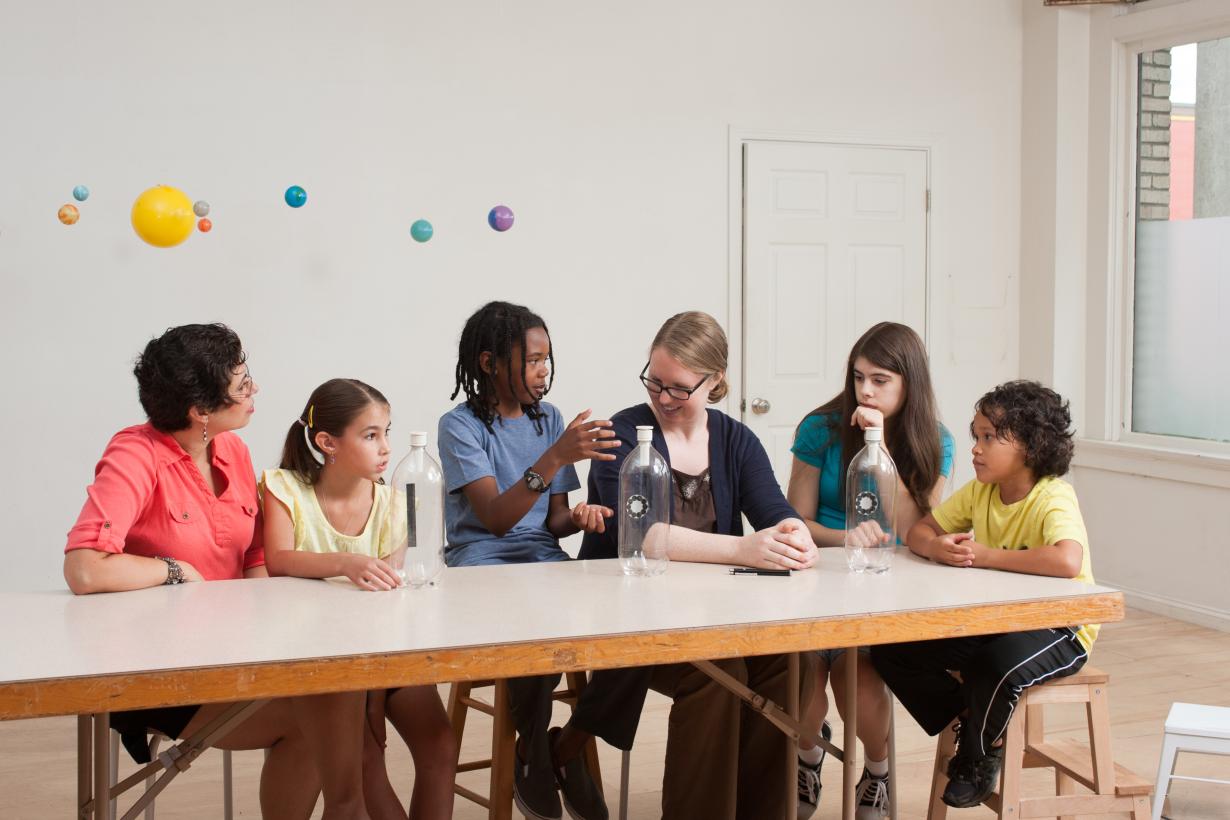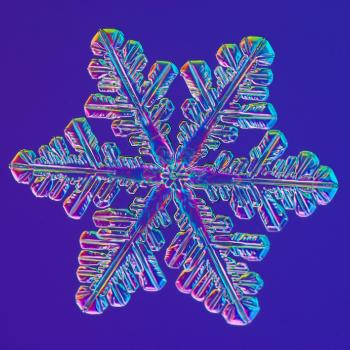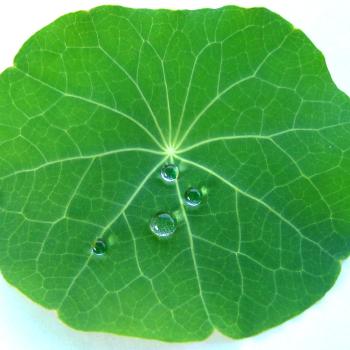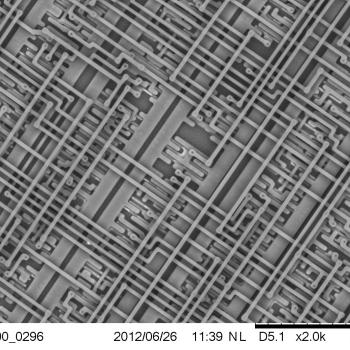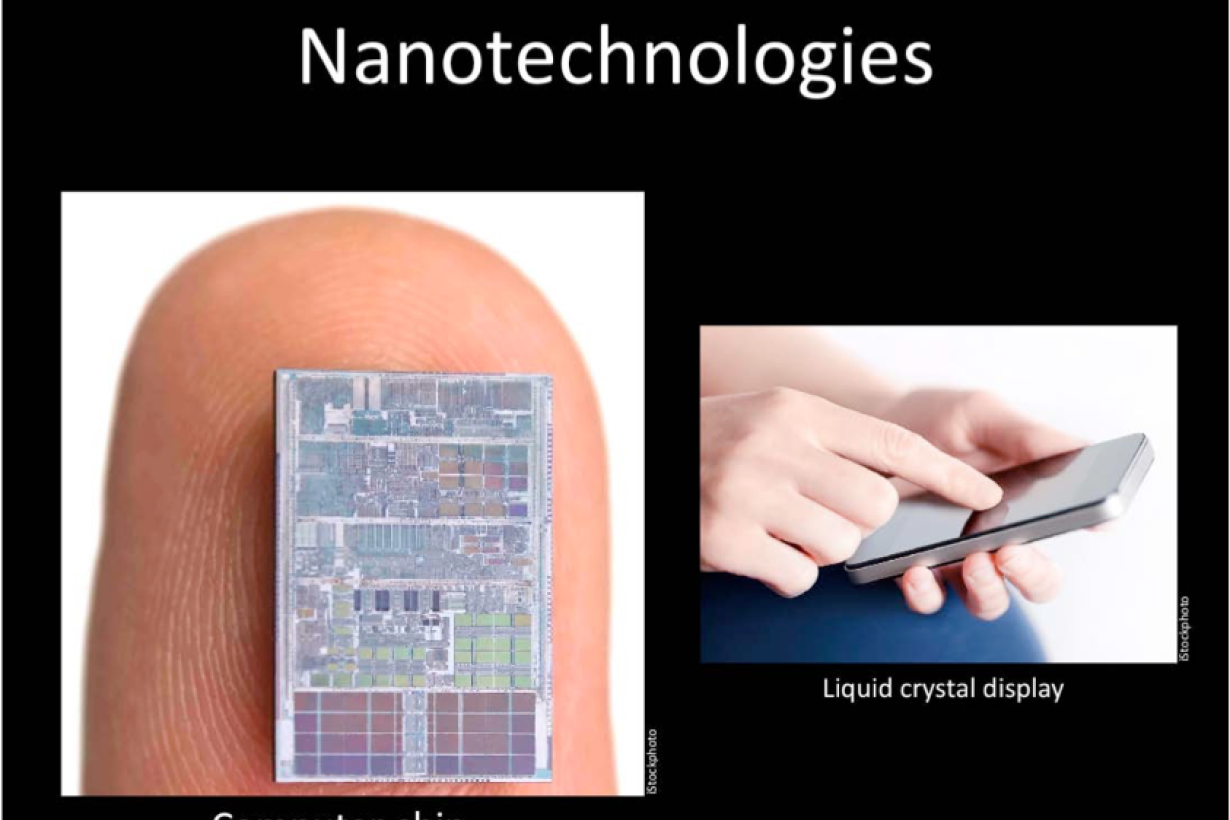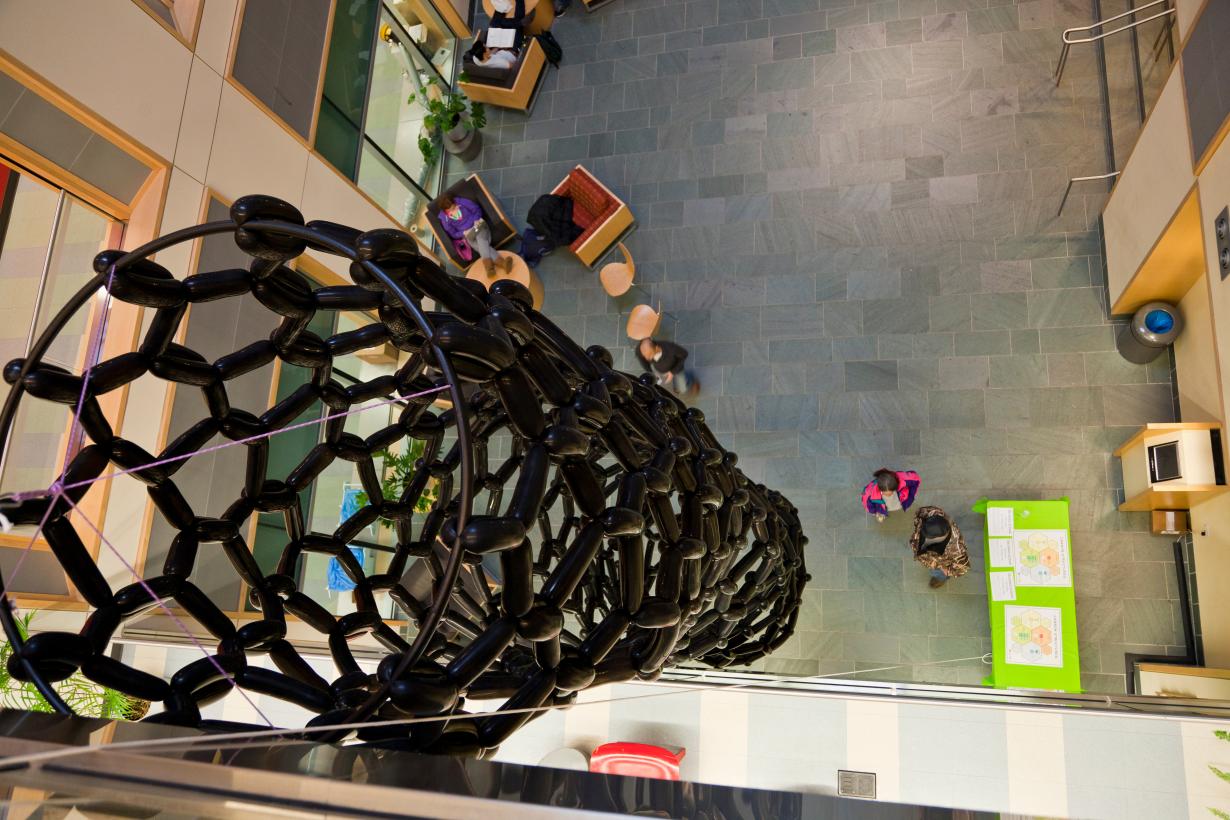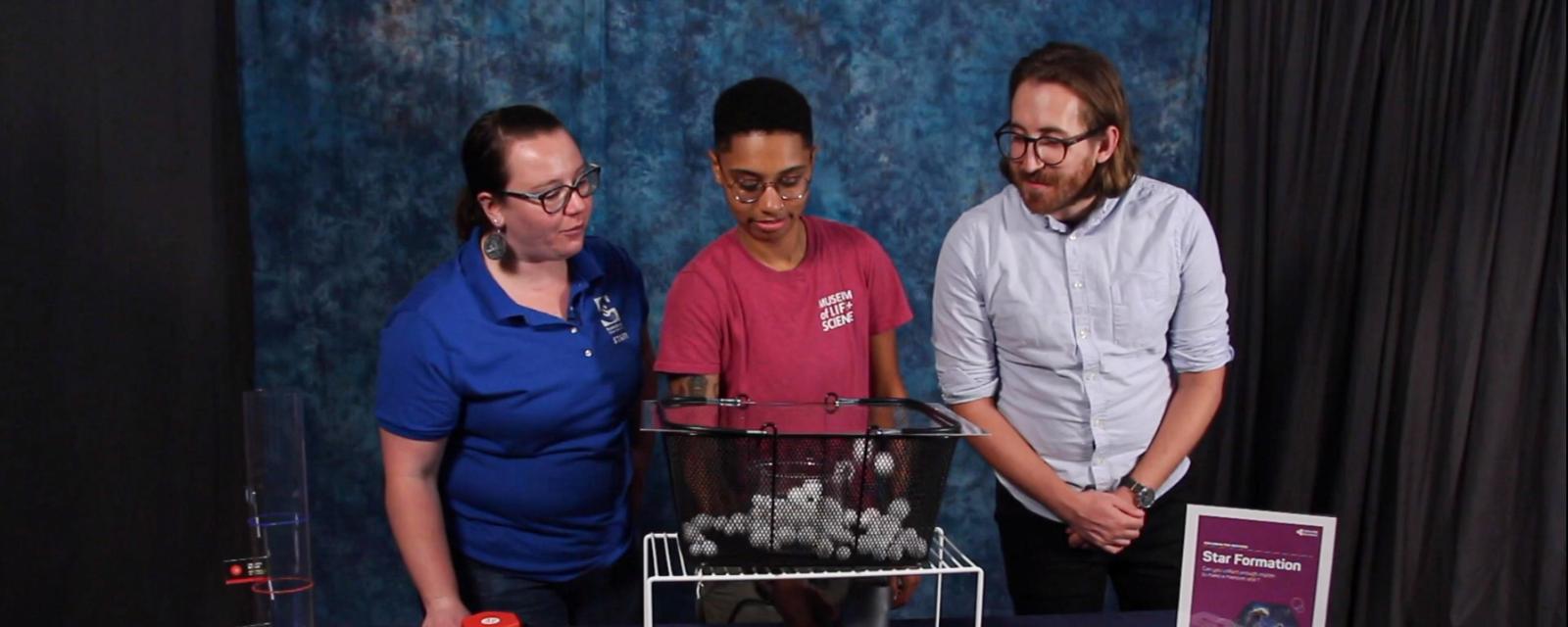
Professional Learning for Educators
Featured Resources for Program Implementation, Delivery, and Facilitation
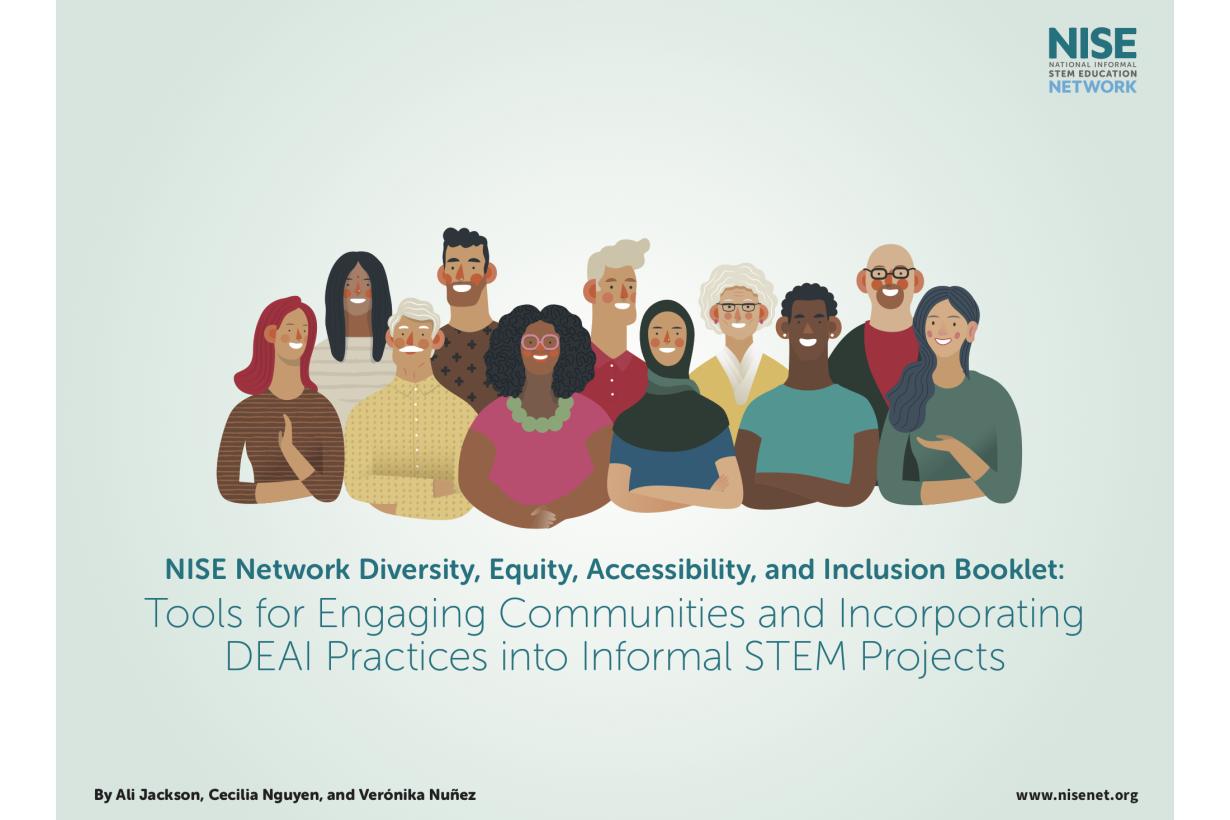
Diversity, Equity, Accessibility, and Inclusion (DEAI) Booklet
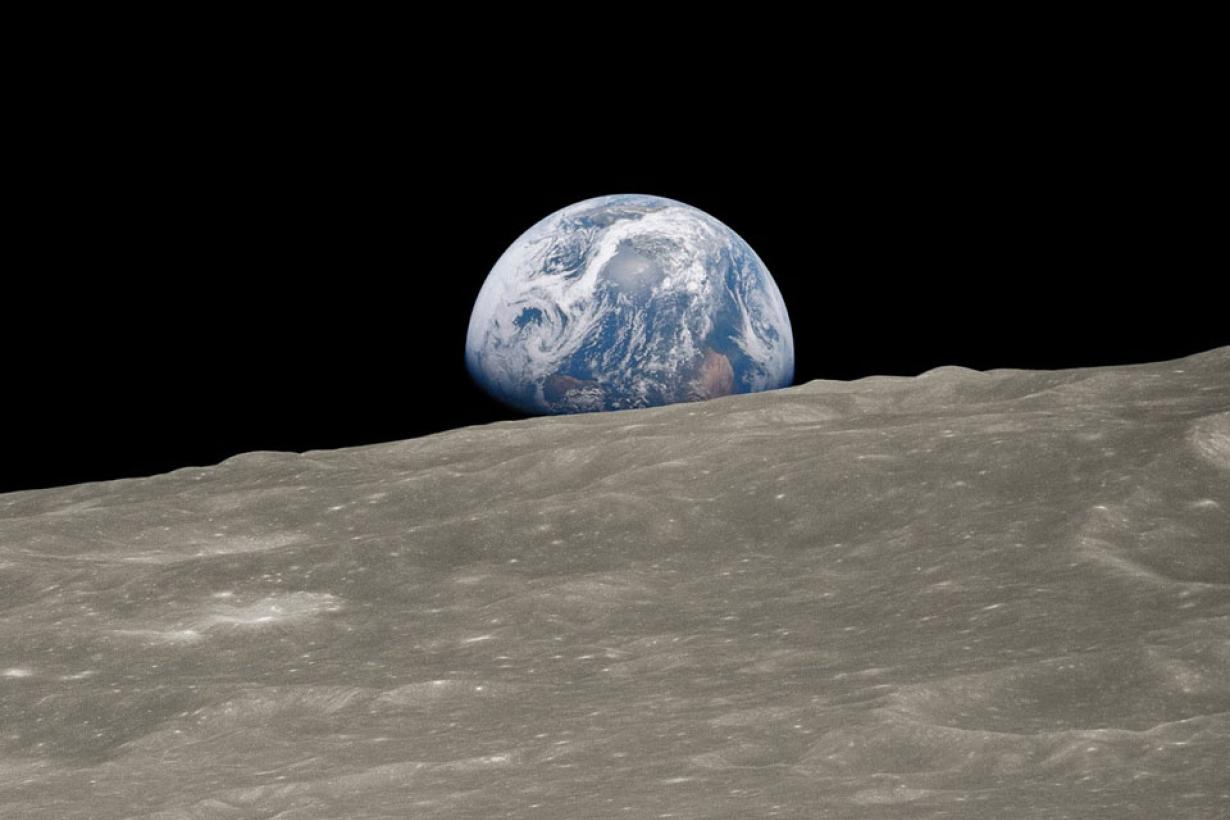
Making Earth & Space Science More Relevant and Inclusive
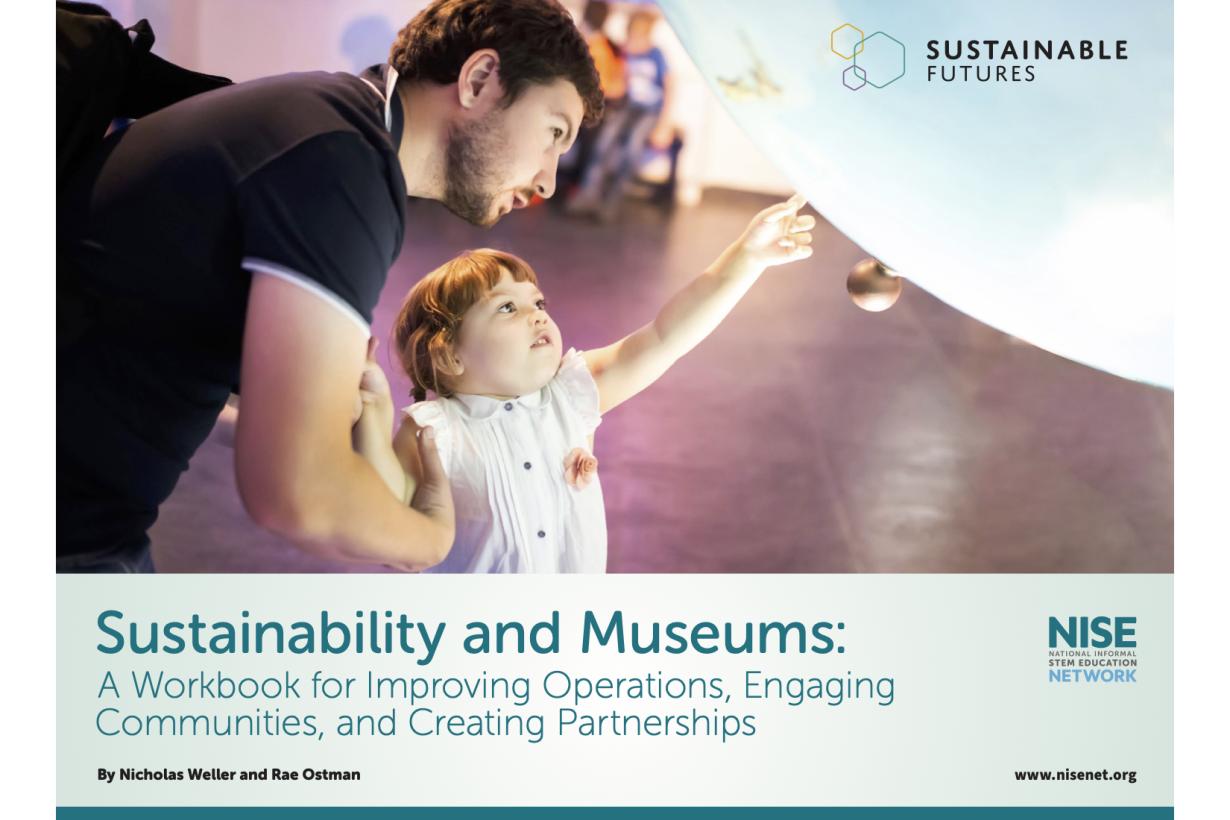
Professional Resources for Sustainability
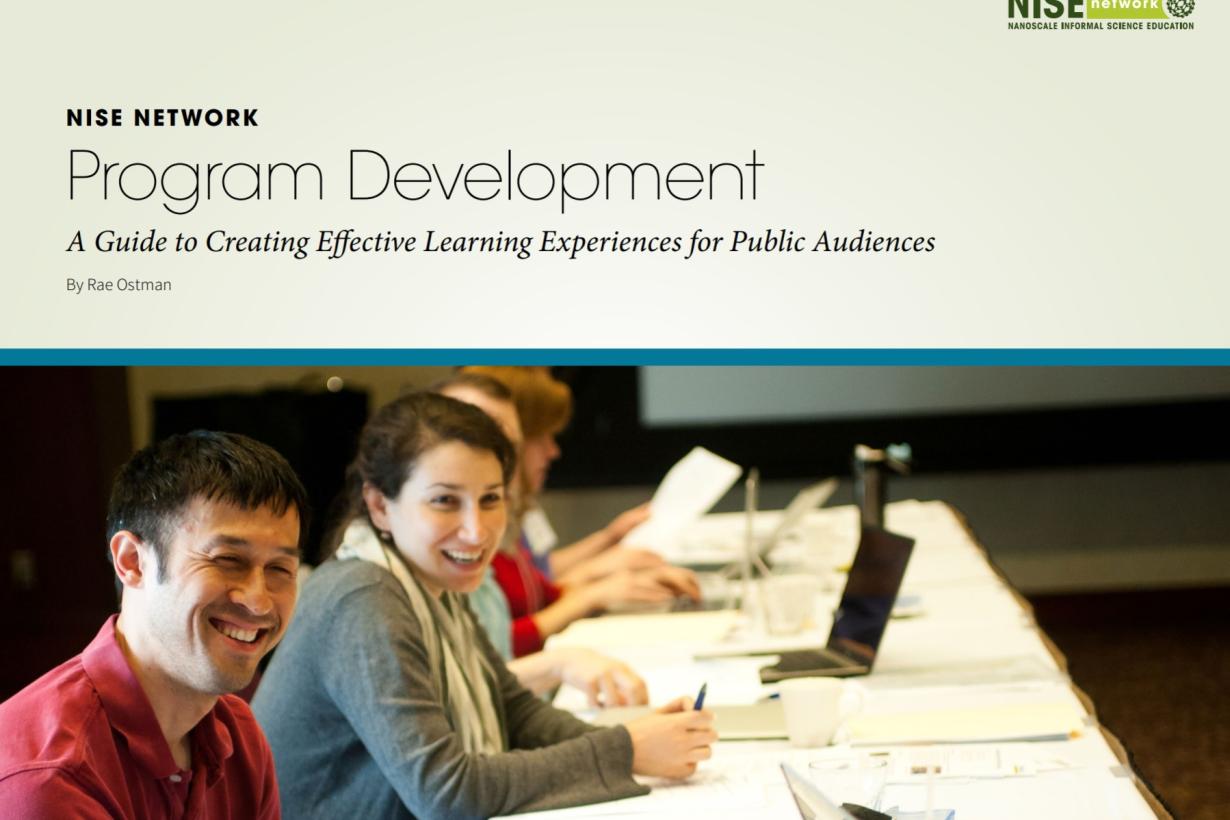
Program Development: A NISE Network Guide to Creating Effective Learning Experiences for Public Audiences
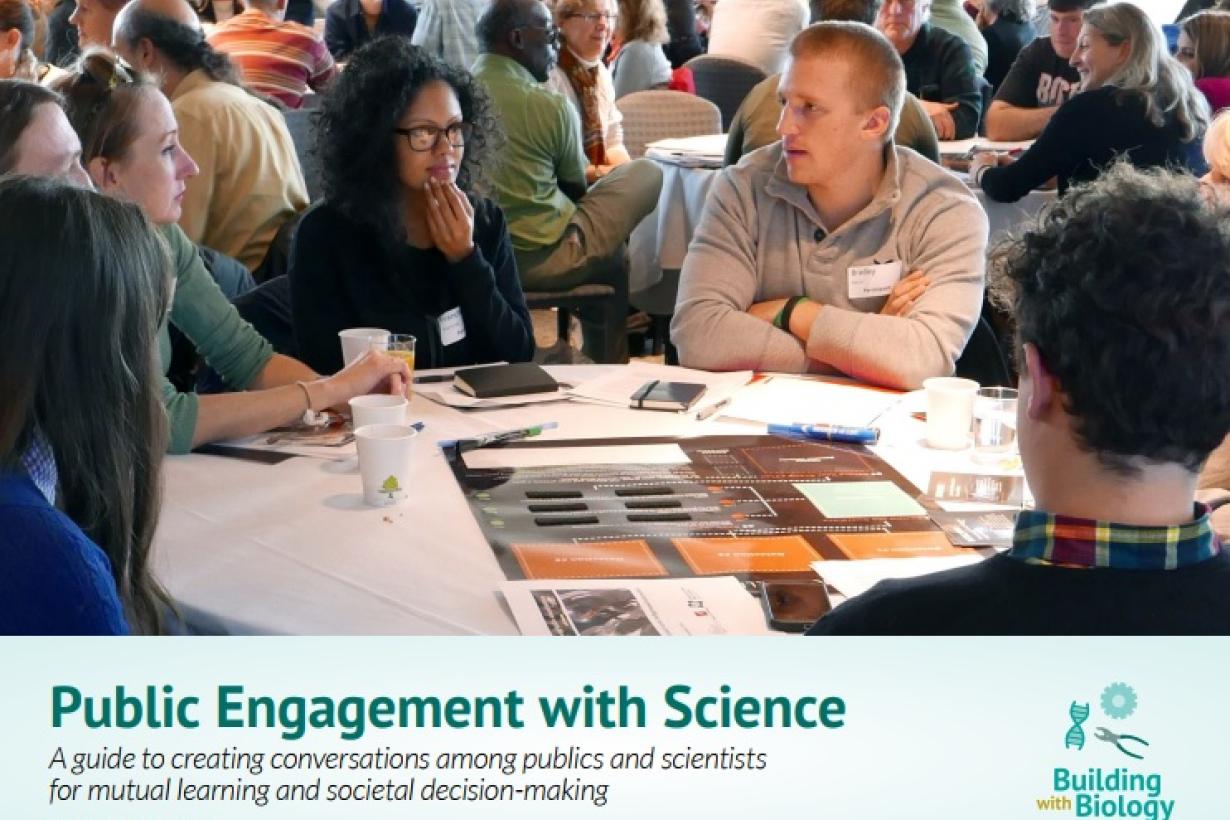
Public Engagement with Science: A guide to creating conversations among publics and scientists for mutual learning and societal decision-making
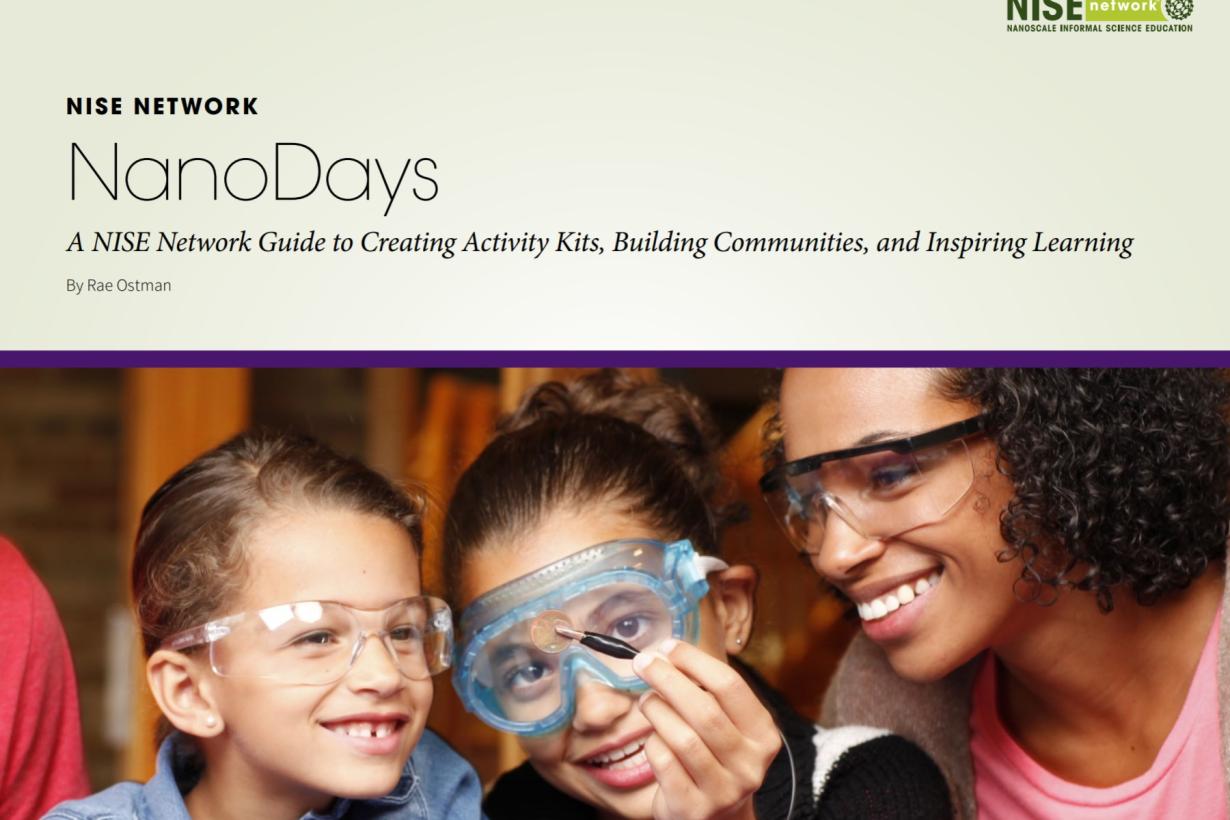
NanoDays: A NISE Network Guide to Creating Activity Kits, Building Communities, and Inspiring Learning
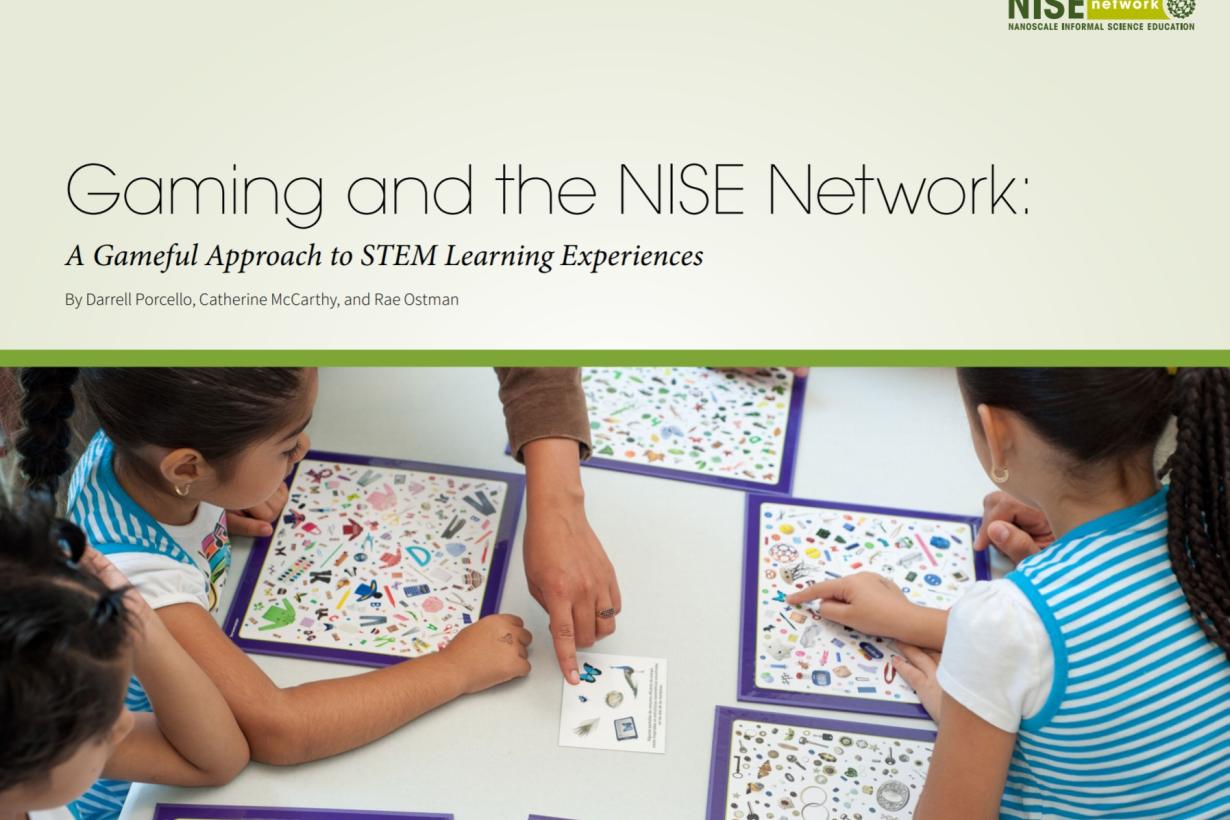
Gaming and the NISE Network: A Gameful Approach to STEM Learning Experiences
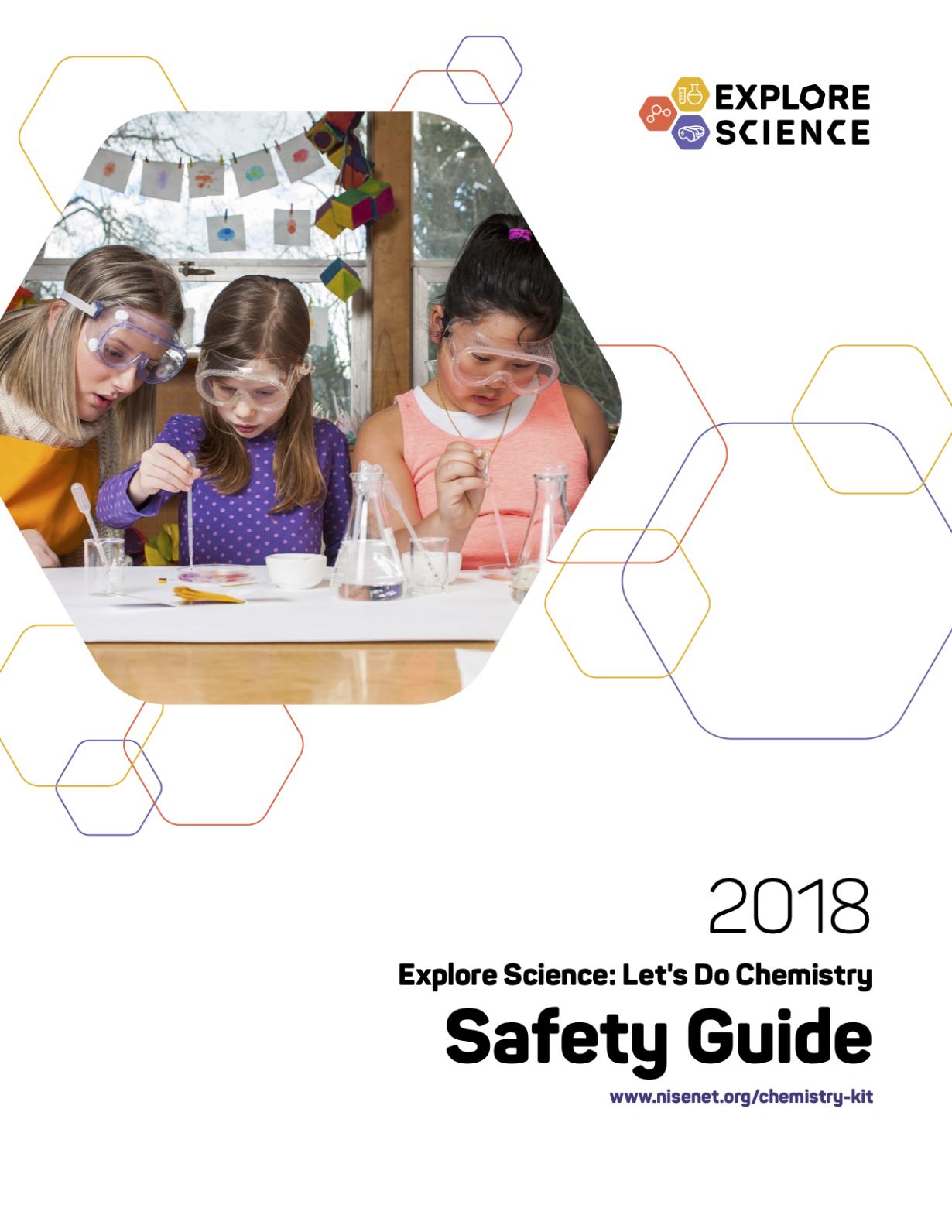
Explore Science: Let's Do Chemistry Safety Guide
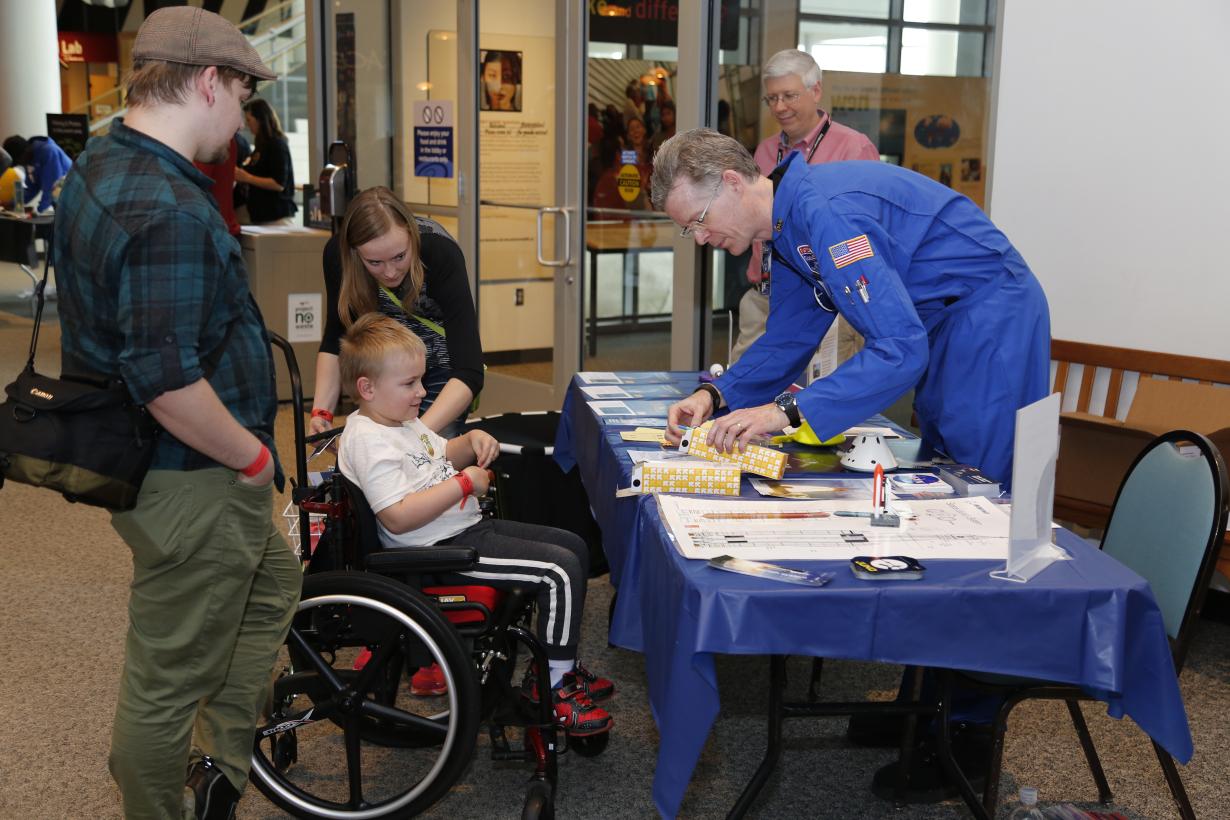
Tips Sheets for Engaging Public Audiences
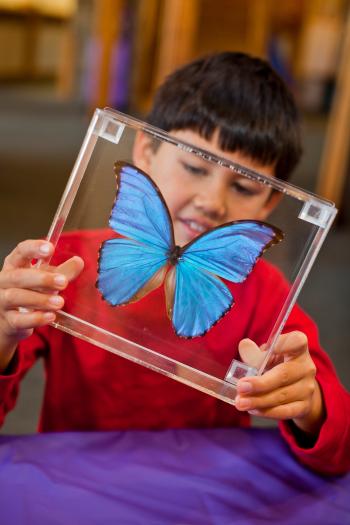
Additional Resources
- Supporting Positive Attitudes Toward Learning Chemistry Through National Let's Do Chemistry Events
- NanoDays Training Resources
- Improv Exercises
- Public Forums Manual
- Science Cafe Guide
- Nanotechnology and Society Guide
- Nano & Society Workshop
- NISE Network Guide - Nano Exhibition: Creating a Small-Footprint Exhibition with Big Impact
- NISE Network Program and Activity Templates
Featured Resources for Engaging Specific Audiences
More about NISE Network's audiences
Tips Sheets for Engaging Public Audiences
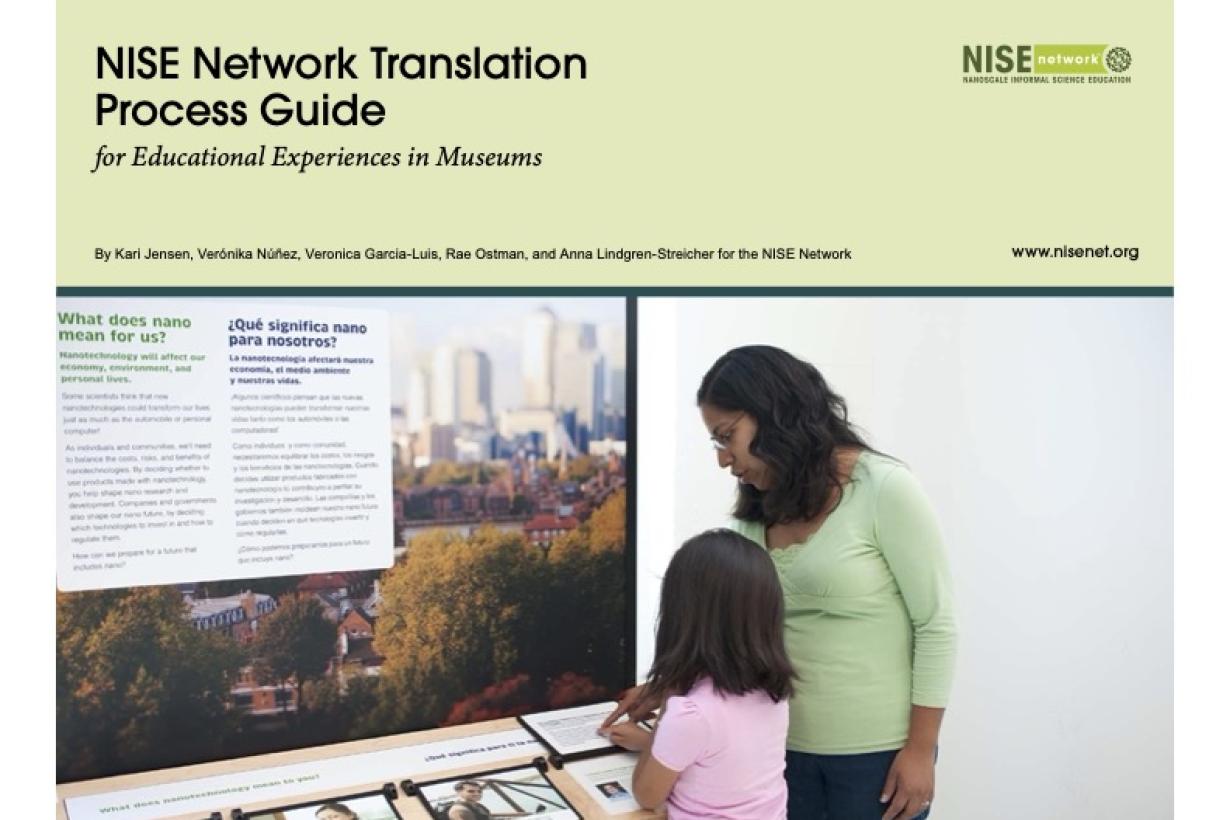
Translation Process Guide
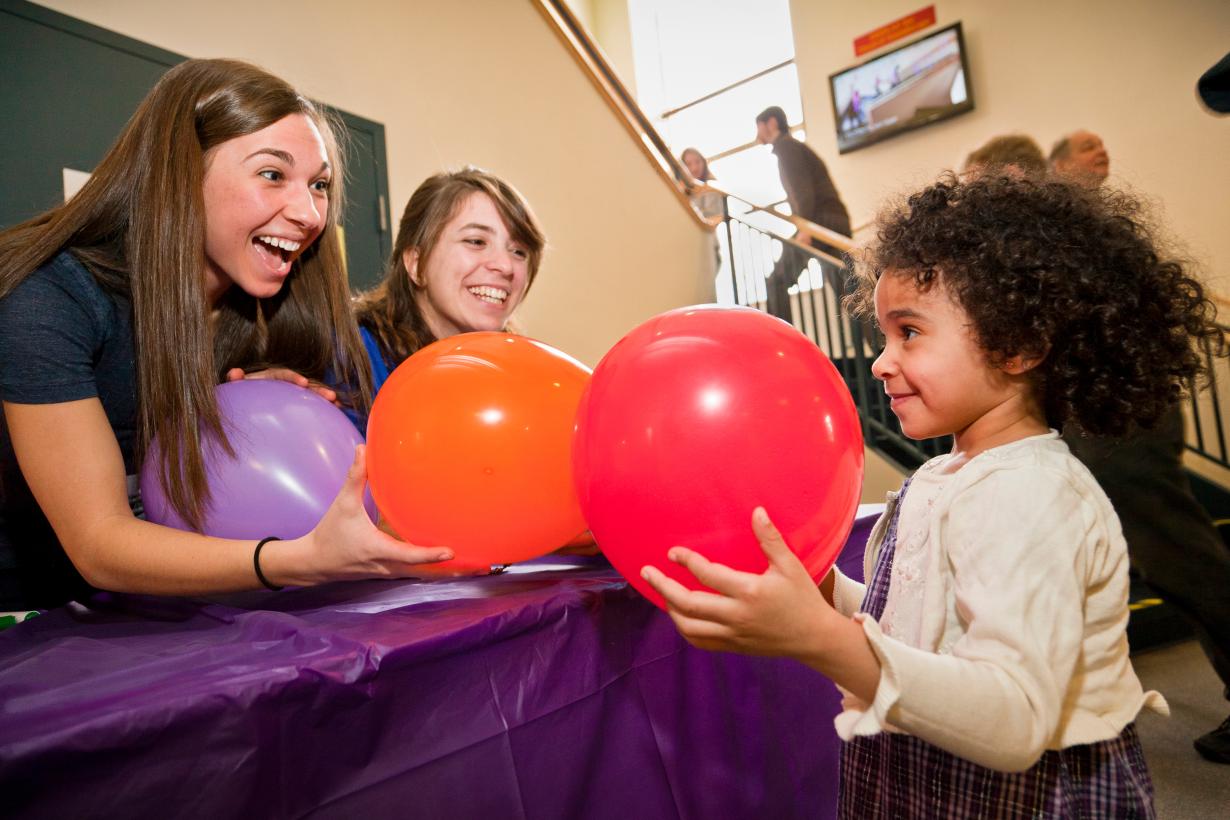
Inclusive Audiences
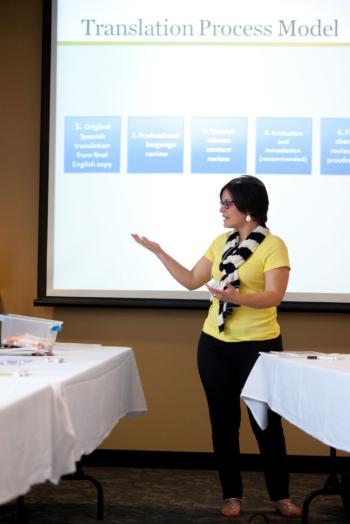
Tip Sheets and More Guides
- Tips for Leading Hands-On Activities
- Tips for leading hands-on activities and Using positive responses with difficult concepts
- Tips Sheet for Planning Guest Presentations
- Tips Sheet for Guest Speakers
- Tips Sheet for Interacting with Young Learners
- Tips Sheet for Accessibility, Inclusion, and Engagement in Museums and Planetariums
- Tips Sheet for Engaging Girls at NanoDays
- Tips Sheet for Engaging Bilingual Audiences
- Collaborations Tips
More Guides
- Bilingual Design Guide
- Bilingual Audiences Workshop Resources
- Strategies for Engaging Bilingual Audiences
- Afterschool Framework
Ice Breaker Activities and Improv Exercises
- Improv Exercises can be used by professionals as icebreakers, getting-to-know-you activities, and as tools to empower educators to facilitate positive, learning conversations with visitors.
- Sustainability Connectagons collaborative construction challenge to help professionals build relationships across their institution or with other community organizations.
- Changing Brains Stand Up Sit Down Icebreaker where participants vote with their feet and seats by standing up, or sitting down, to show their agreement with potential scenarios
Event Planning and Promotional Guides
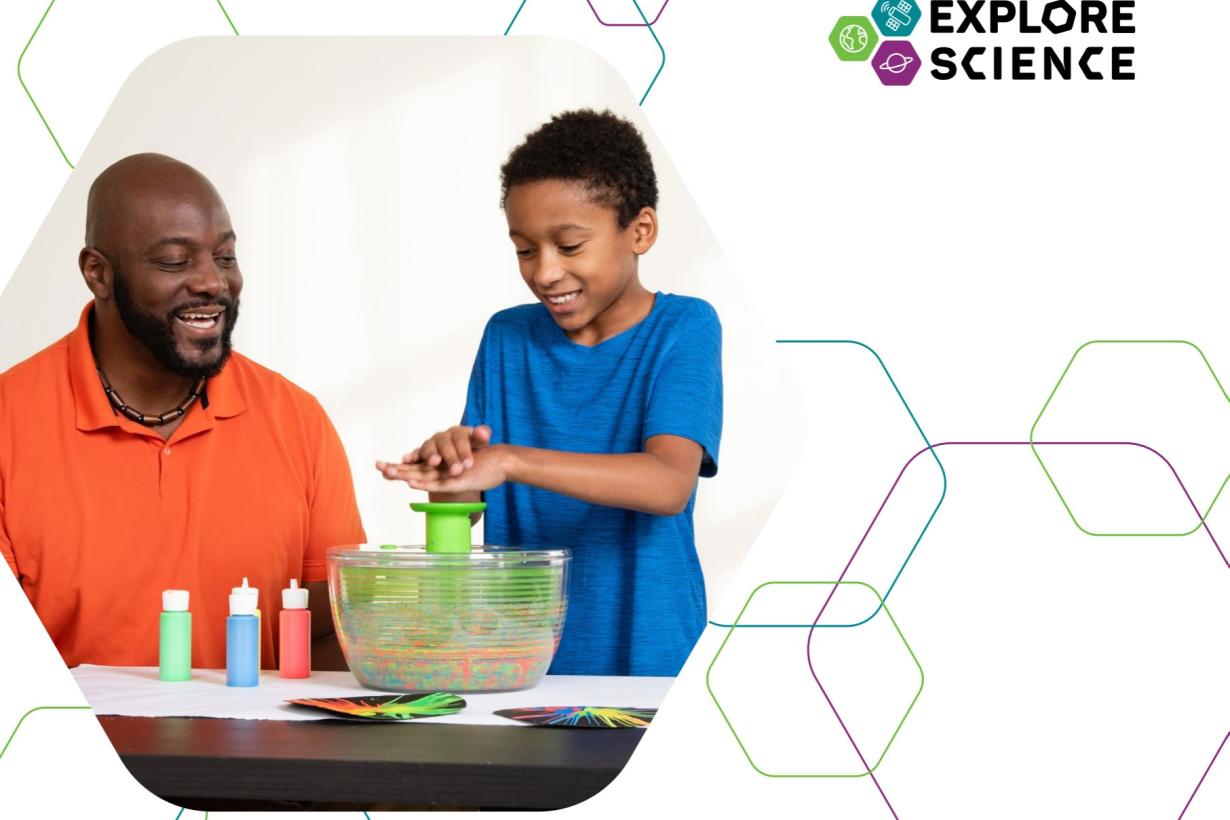
Explore Science: Earth & Space Event Planning and Promotion Guide
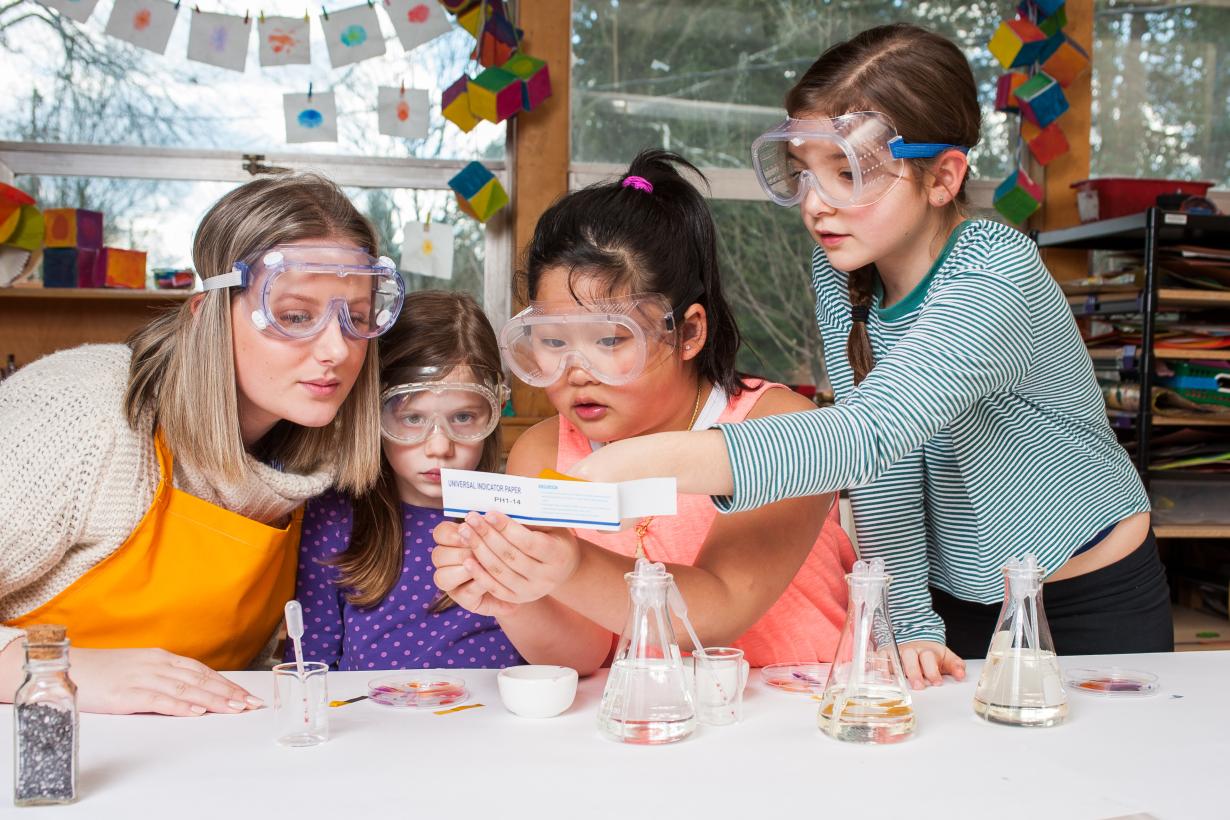
Explore Science: Let's Do Chemistry Event Planning and Partnership Guide
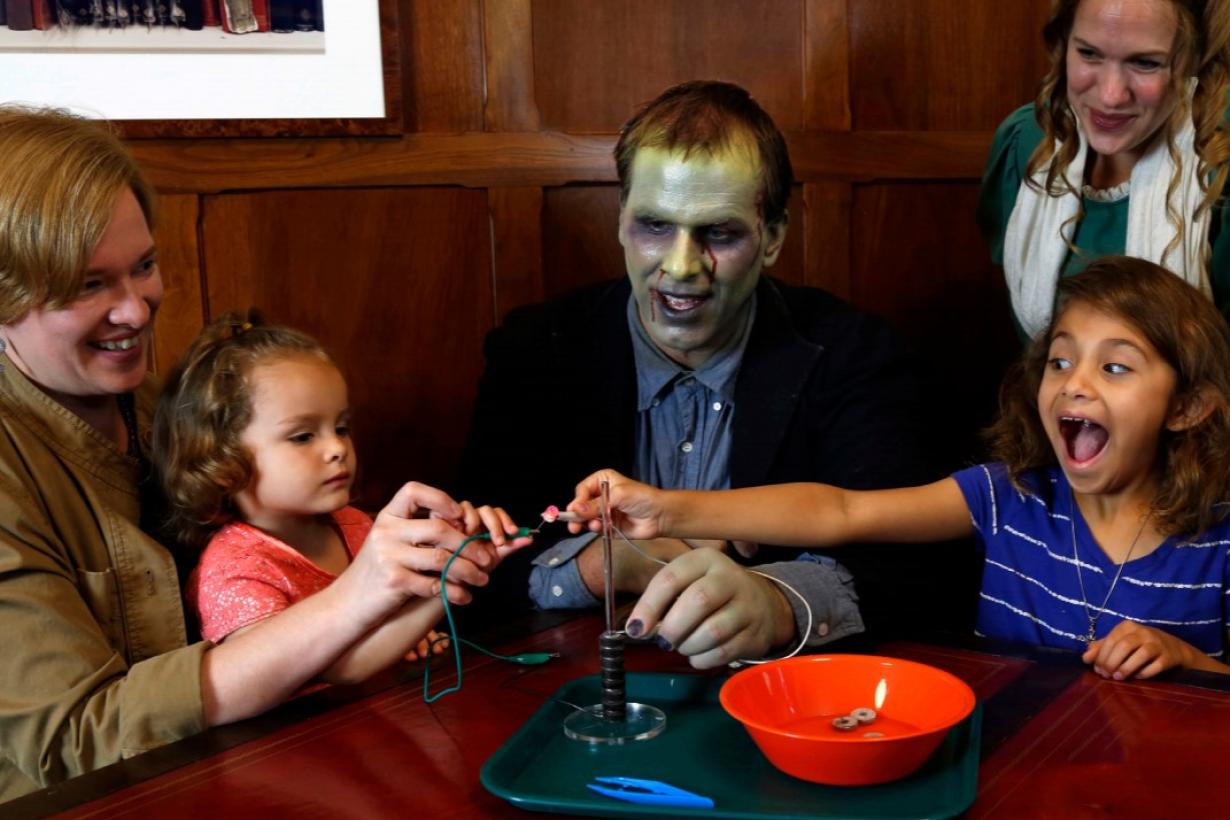
Frankenstein200 Planning and Promotional Materials
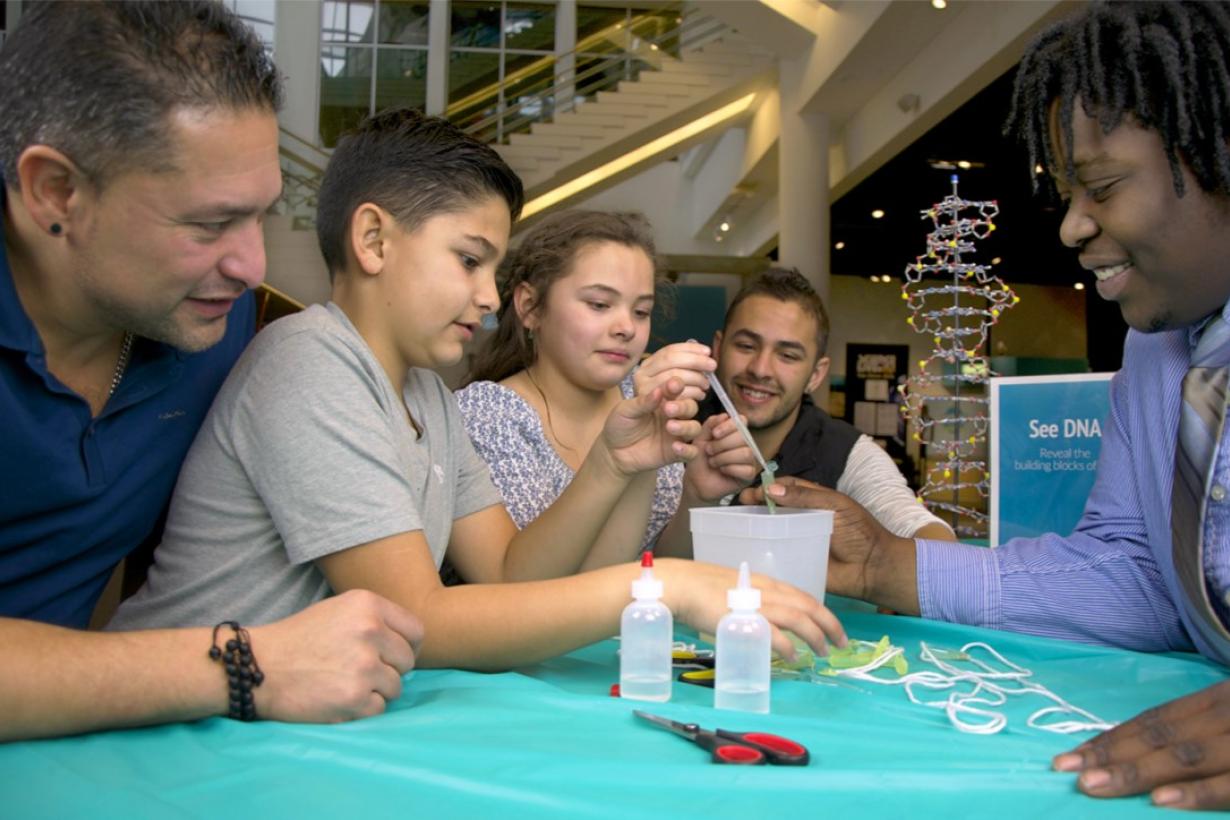
Building with Biology Event Planning and Marketing Guide
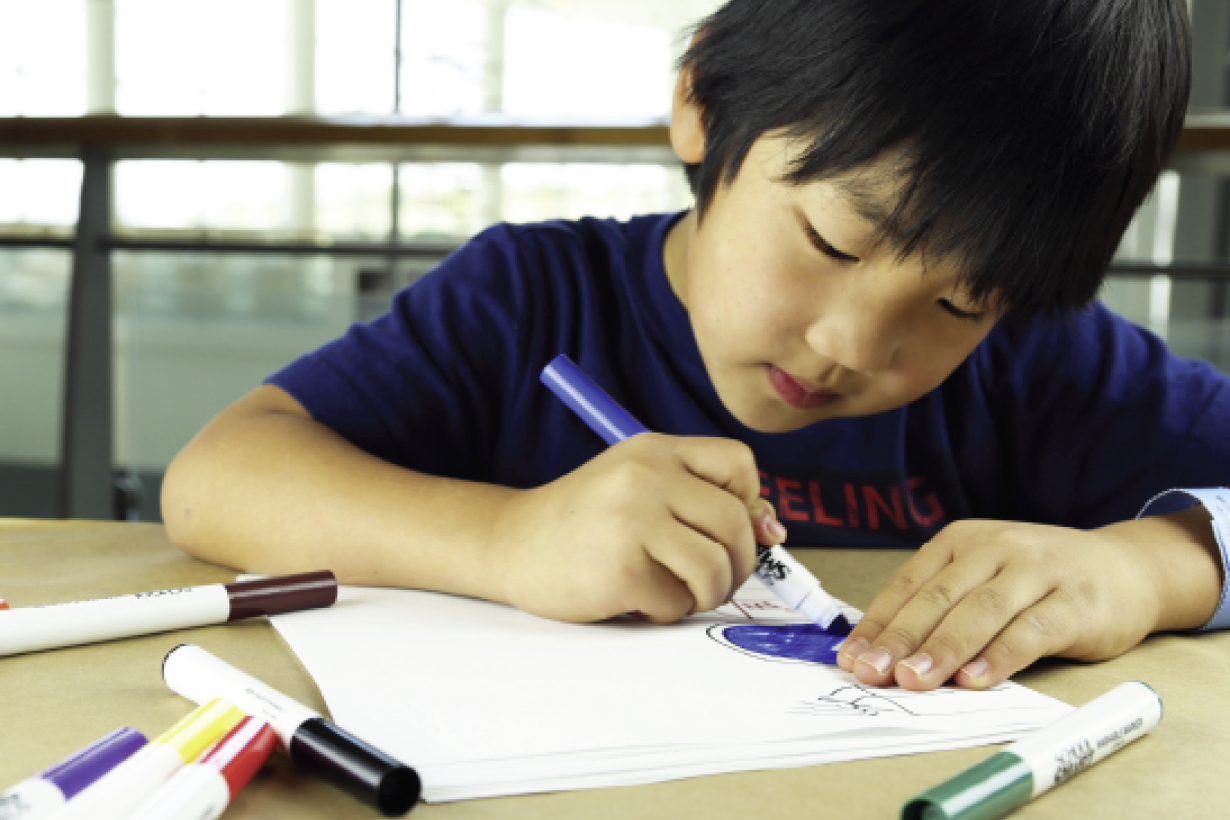
Sustainability in Science Museums Planning and Promotional Guide
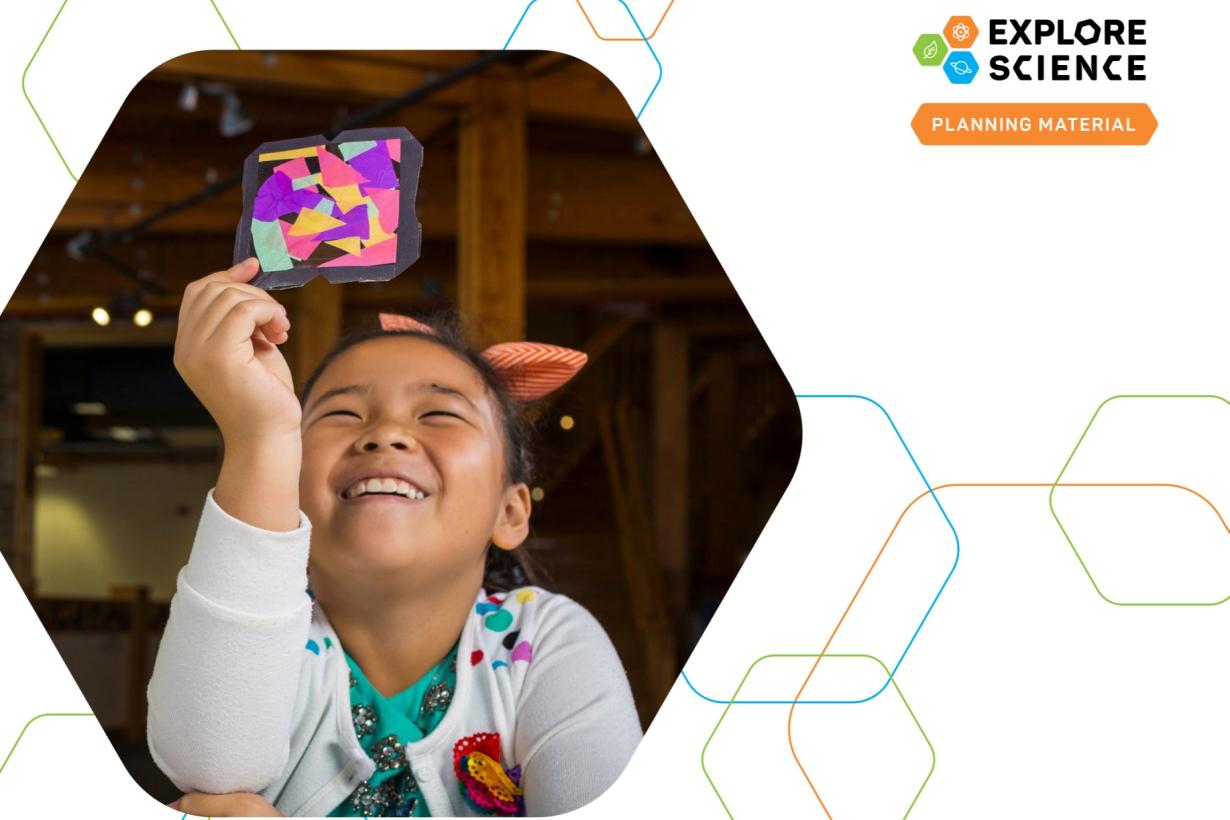
Explore Science - Zoom into Nano Planning & Promotional Materials
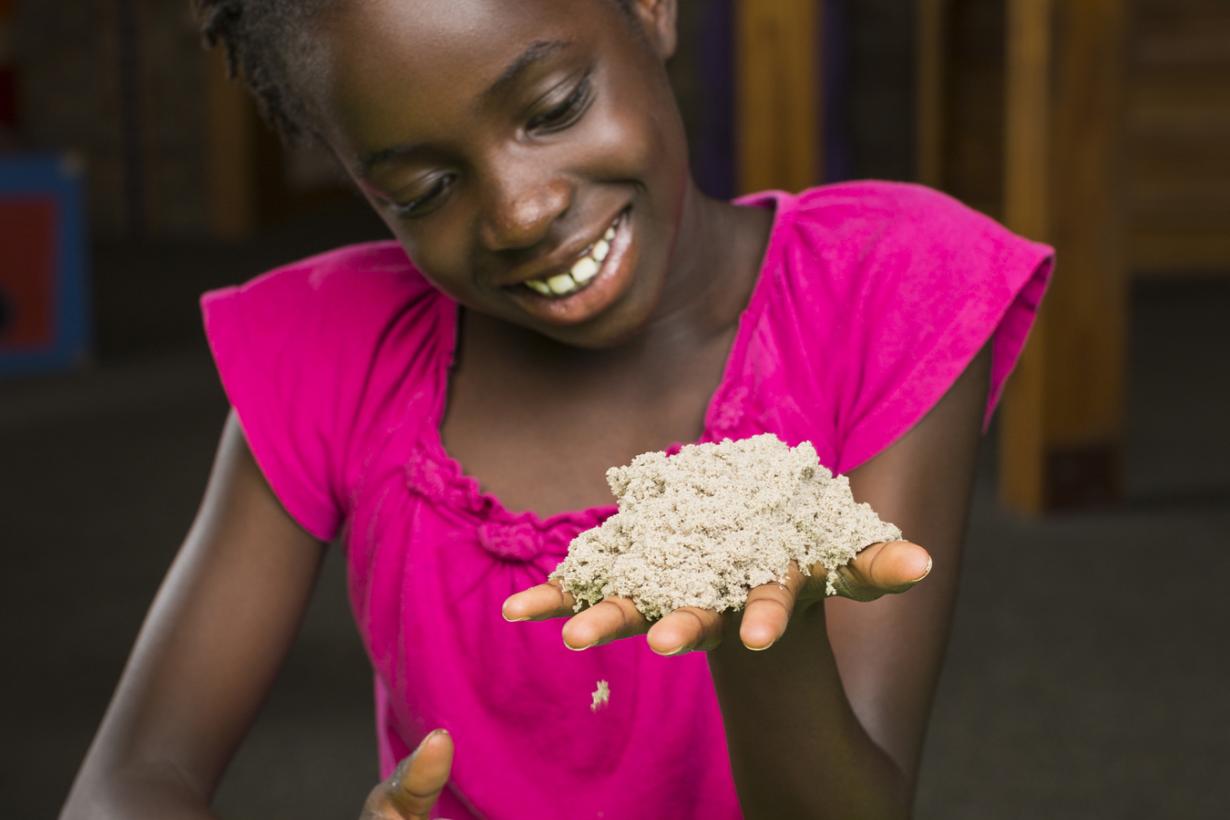
NanoDays Planning Guide
Collaboration Guides
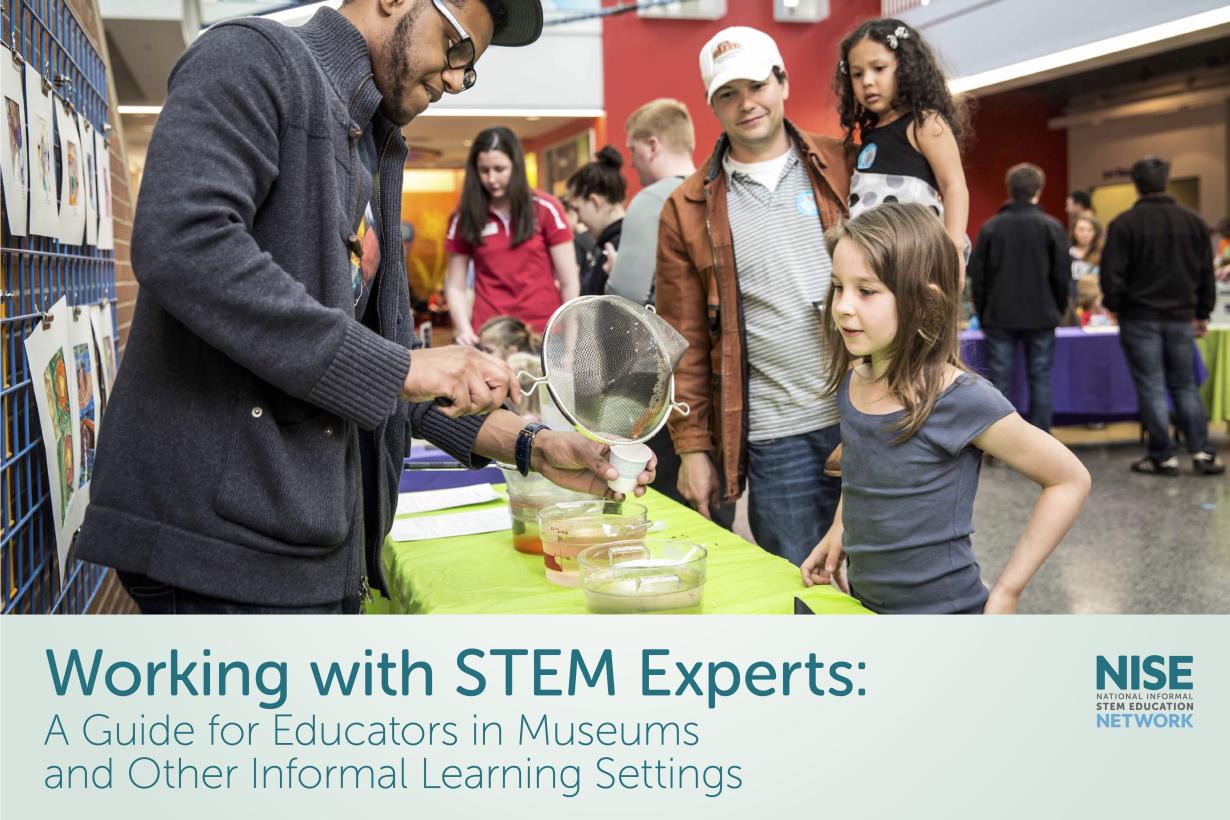
Working with STEM Experts: A Guide for Educators in Museums and Other Informal Learning Settings
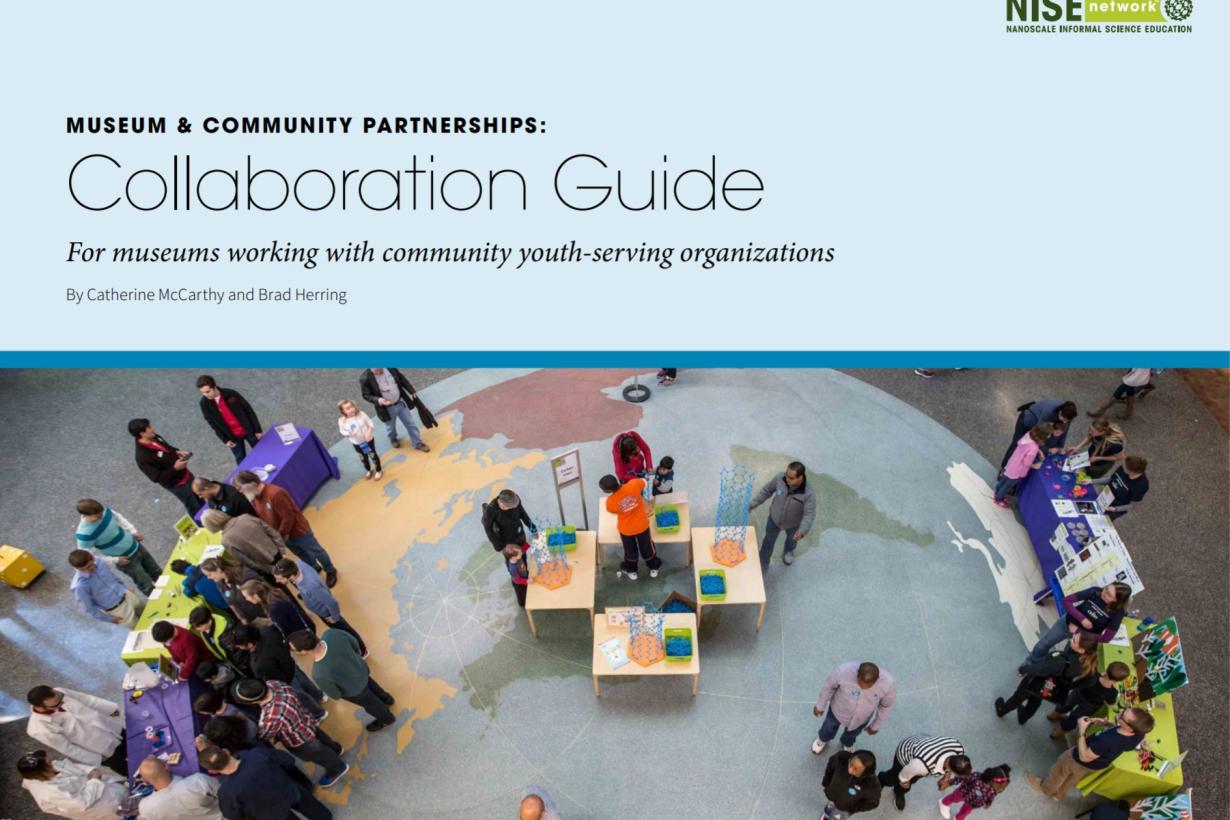
Museum & Community Partnerships: Collaboration Guide and additional resources
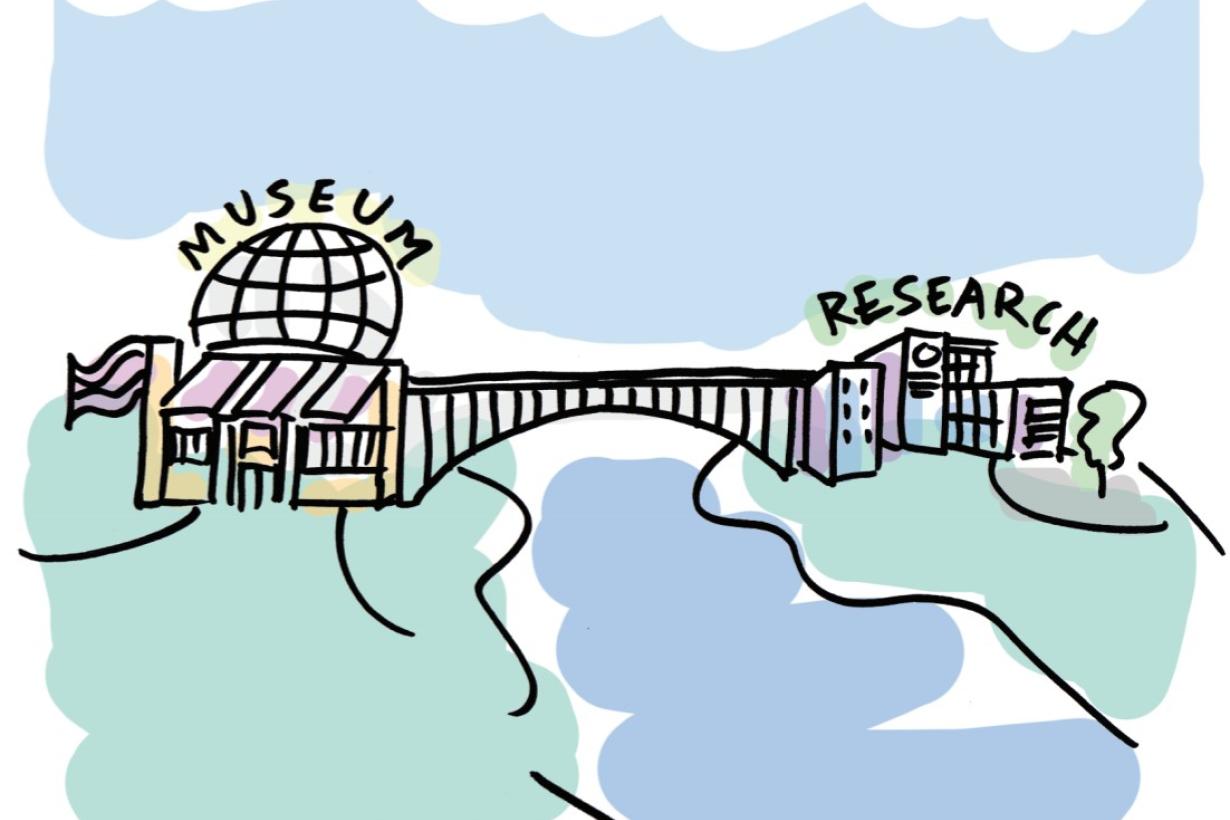
A Guide to Building Partnerships Between Science Museums and University-Based Research Centers
Earth & Space Frameworks
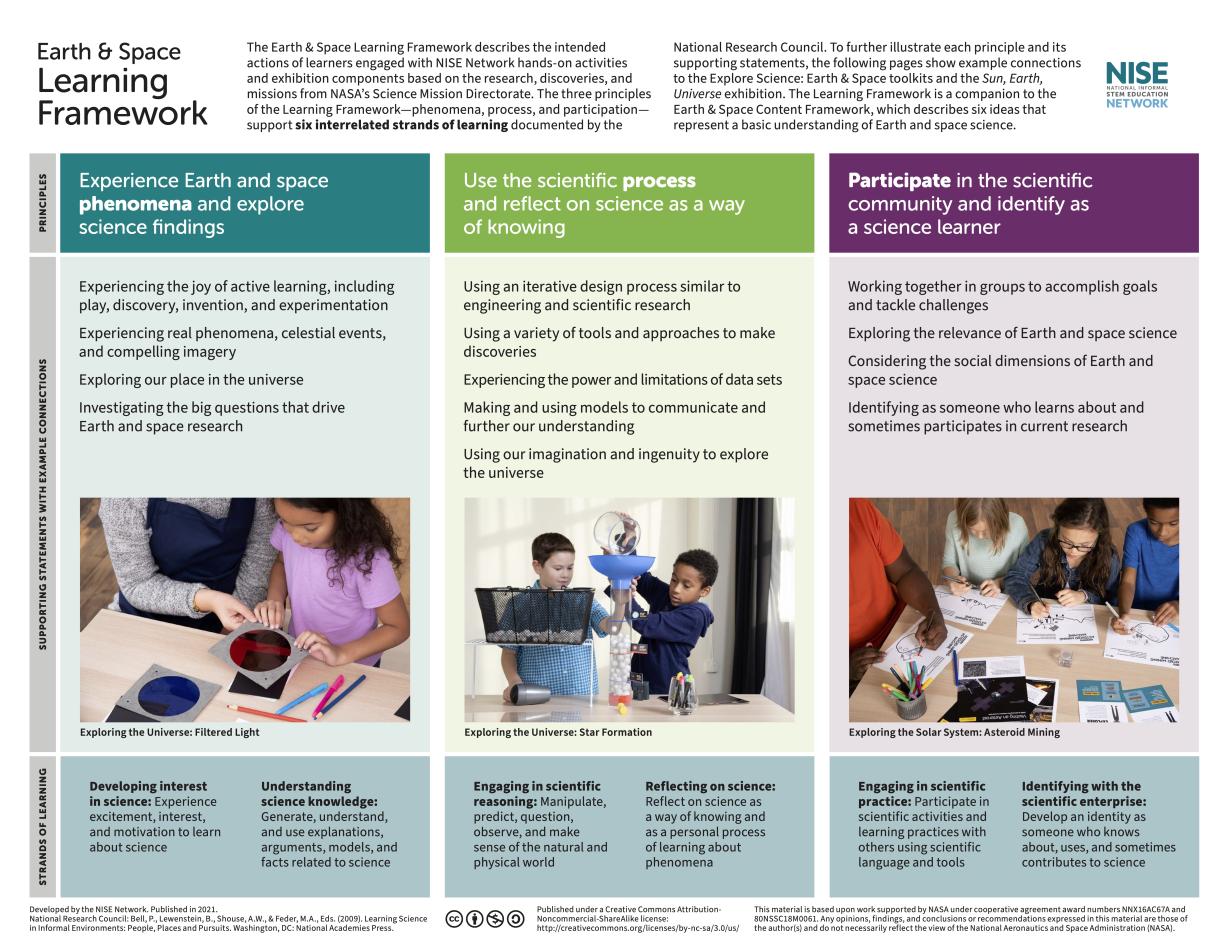
Earth & Space Learning and Content Frameworks

Making Earth & Space Science More Relevant and Inclusive
Nano Content Maps & Key Concepts
Intro to Nanoscale Science / Nano 101
Browse All Professional Learning for Educators
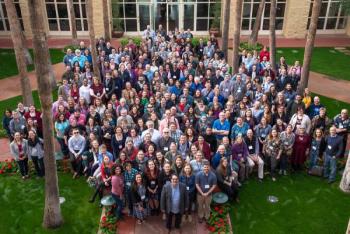
Resource Highlight: Leading and Managing the NISE Network: Practical Solutions for Creating a Flexible National Network
This guide shares what the leadership of the NISE Net did to create this national supportive network whose scope and scale were unprecedented in the science museum field.
More about NISE Network’s Development Process
NISE Network professional learning resources are created through an iterative, collaborative process that involves professionals in the field of informal science education, scientists with expertise in the content area, and targeted public audiences. This process helps to ensure that our resources and guides represent best practices in public engagement, are scientifically accurate, and are effective experiences for all audiences.

